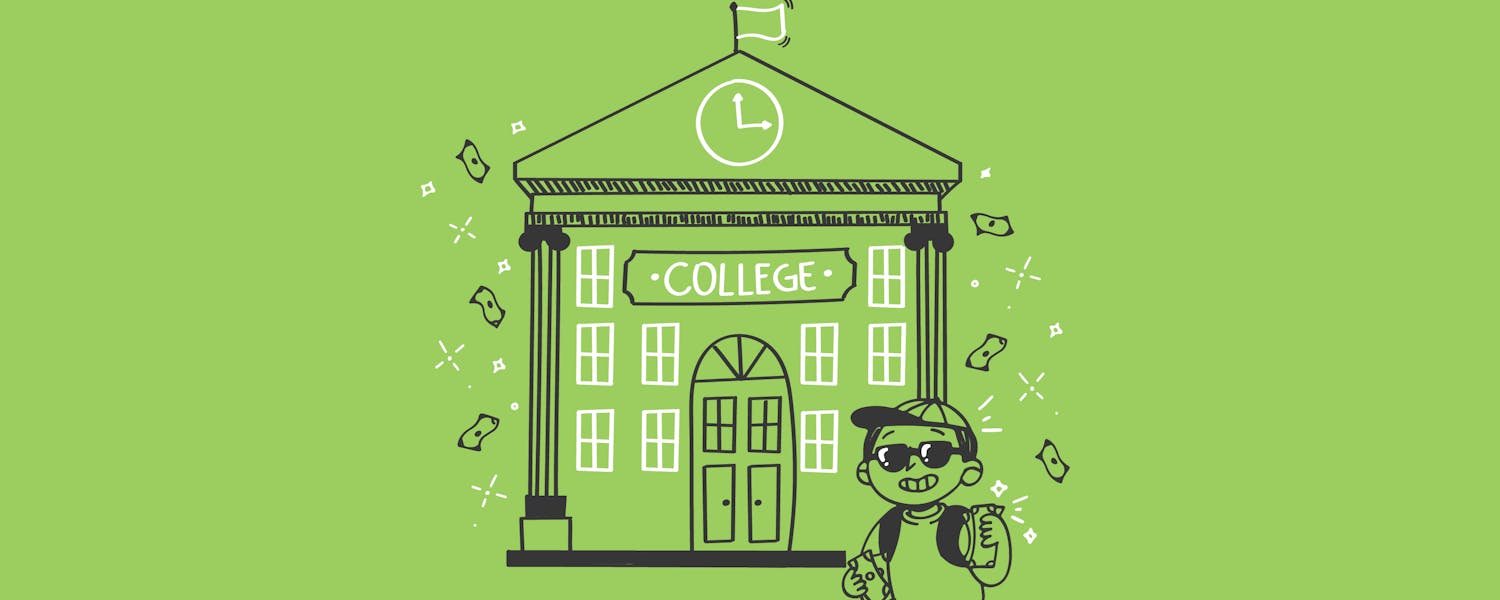Student Loans 101: Basics to Ace your Way into College
A college education is essential to succeed in your career. Consider it an investment in yourself that will pay off with higher salaries and more opportunities in the future.
According to EducationData.org, on average, 83% of undergrads borrow money to get their bachelor’s degree, borrowing as much as $37,113 per student for federal student loan debts (including private student loan debt, the average is as high as $40,339). In addition, Master’s degree graduates have an average debt of $71,287, but 14.3% of the debt is from their undergraduate studies.
Student loans are a great way to get the education you need to help you succeed in your chosen career.
What are Student Loans?
A student loan is a loan that helps you pay for your post-high school education. You borrow the money now, promising to pay it back after graduation. Most student loans have a grace period while you’re in school, requiring no payment or interest-only payments until you graduate.
The loan process is similar to any other loan program, but how they work differs slightly because of the reason they’re used.
How do They Work?
When you borrow money to go to school, you not only promise to pay back the amount you borrowed, but you’ll also pay interest. The interest is the fee for borrowing the money. It’s a percentage of the amount you borrowed. You’ll pay more interest at the start of the loan because you have a higher balance. Then, as you pay your loan balance, your interest charges decrease.
Some student loans have fixed interest rates. This means the rate stays the same for the life of the loan. Others have a variable interest rate, which can change monthly, altering your payment.
Most student loans have an origination fee and another fee for borrowing the money. The origination fee is expressed as a percentage of the loan amount. For example, federal student loans range from 1.057% to 4.228%.
Most student loans are repaid over 5 to 15 years, depending on the loan type and what you can afford.
Types of Student Loans
Aside from private student loans that you can get from any private lender, there are federal student loan options. However, it’s usually best to exhaust all federal loan options first because they have better rates and terms than private loans.
There are four types of federal loans to consider.
The U.S. Department of Education (DoE) provides direct loans to undergrads enrolled in school at least half-time for a bachelor’s degree or trade school.
There are two types of Direct loans.
Direct Subsidized Loans
Direct subsidized loans are federal student loans that don’t accrue interest while in college. They are based strictly on financial need, and your school must determine how much you can borrow. The DoE covers the interest while you’re in school. They also continue to cover it for the first six months after you are done with school.
Direct Unsubsidized Loans
Direct Unsubsidized loans are also student loans, but anyone can qualify as they aren’t based on need. The school determines your loan amount based on enrollment and room/board costs. They also consider any other financial aid options you received.
Interest accrues on unsubsidized loans, but you don’t have to pay it while enrolled in school if you can’t. Instead, the lender adds the interest to the loan, and it’s included in the repayment plan when you leave school.
If you want to use any special student loan repayment plans, you must refinance using the Direct Consolidation program. Here’s how it works.
Direct Consolidation Loan
A Direct Consolidation loan is the only way to take advantage of income-based repayment plans. These repayment plans calculate your loan payment based on your annual income. So if you make a little, your payments decrease, and vice versa.
To take advantage, you must consolidate all federal loans into one loan and apply for the repayment plan. This gives you one loan payment and one interest rate to manage for the loan term.
Then there’s one final loan – the Direct PLUS loan.
Direct PLUS Loan
The Direct PLUS loan is for anyone attending graduate school or parents who want to take loans out for their students.
Financial need doesn’t play a role in these loans; however, the DoE will check your credit to ensure you can afford the loans and don’t have a history of defaulting on any debts.
How to Apply for Student Loans
Anyone who wants to apply for federal student loans must complete the Free Application for Federal Student Aid (FAFSA). This is the form the DoE and your intended school use to determine how much federal aid you qualify for, including direct subsidized loans.
Your chosen school will send you a letter stating how much you can borrow and on what terms. To accept the offer, you must take entrance counseling to learn about student loans and how they’ll affect you after college. You must also sign a Promissory note. This legal agreement to repay the loan allows the DoE to take legal action if you don’t.
If you have any remaining costs you can’t cover after exhausting your federal student loans, you can apply for private student loans. However, keep in mind that private student loans don’t assist with interest or other costs, like direct subsidized loans, have variable interest rates and may have different terms than a federal student loan.
Here's 5 tips to pay off your student loan
- Pay right away
Doing student loan payments while you're still in school or during grace period. - Sign up for automatic debit
If so your student loan servicer will automatically deduct from your bank account each month. - Pay more than your minimum payment
This can reduce the interest you pay and the total cost of your loan over time. - Use your tax refunds
Dedicate your tax refund to paying off some of your student loan debt. - Seek out loan forgiveness and repayment options
Most of these programs have specific eligibility. Do your research to learn if you qualify!
Final Thoughts
Choosing to invest in yourself can be one of the best investments you make in your lifetime. Whether you work for someone or open your own business, having a college degree can help you be more successful.
Student loans may feel overwhelming when you start college and leave and have to make payments, but they are worth it in the end. Think of them as the means to an end. You borrow the money now to increase your future earnings. You’re investing in yourself and will likely see an incredible rate of return with the success you have in your career.





